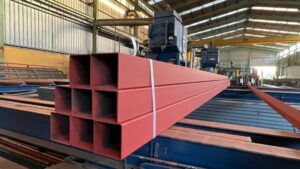
EU automotive production is expected to grow by only 0.8% on-year in 2020, followed by a 2.8% rebound in 2021, according to European steelmakers’ association Eurofer. Output in 2019 is expected to have declined -5.6%.
Prospects for the sector have improved after the worst of the slump passed in 2019, Eurofer says. Europe’s electric-vehicle (EV) market looks set to register a further increase following the first signs in 2019 of car buyers’ preference shifting from petrol and diesel cars to EVs and plug-in hybrids. Over the next three years, the number of available EVs in Europe is expected to reach 150 models.
“Nevertheless, with sales of conventional cars stabilising at best and the still rather limited penetration rate of EVs, total EU sales demand is not expected to gain significant strength,” Eurofer says in its latest quarterly report.
Car exports will continue to suffer from subdued demand in key markets such as the US, China and Turkey. “Rising domestic production in the emerging economies suggests that they will not only be in the position to fulfil domestic demand and therefore will import fewer cars produced elsewhere, but also that they may start to export themselves to the international vehicle markets,” Eurofer says in the report seen by Kallanish.
The threat of US tariffs on car and component imports, and the potential of a disorderly Brexit could stymie the EU’s automotive recovery in 2020 and 2021. Stricter emissions regulations, meanwhile, could force OEMs to remove commercially successful but non-compliant models from their vehicle fleet, Eurofer observes.
Production activity in the EU automotive industry fell -2.5% on-year in the third quarter of 2019. European market conditions stabilised but demand in key export markets fell, while some manufacturers faced serious delays in gaining WLTP certification. Q4 production is expected to have declined -5% on-year.




